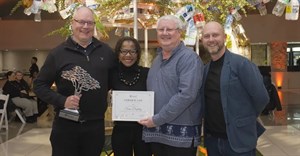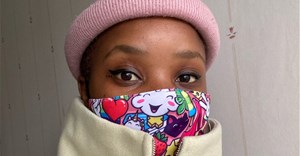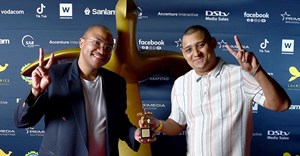Trending




 Sabre EMEA 2024 Awards: Razor PR, Retroviral top SA agenciesDanette Breitenbach
Sabre EMEA 2024 Awards: Razor PR, Retroviral top SA agenciesDanette Breitenbach
Green is the new black at the Loeries
Let's face it, spending a few hours redecorating a crèche in Khayelitsha, or planting a food garden in Alex, doesn't really cost that much in the greater corporate scheme of things. It also gets the staff all warm and fuzzy and paints a rosy picture of what a good corporate citizen you are... Right?
Wrong!
In a lot of instances, that may have been the case to begin with. But it seems the corporate megaliths have really embraced the sustainable practices of the King III Report on corporate governance as a key to good business.
In fact it has become such an integral part of not only business, but also a very appealing marketing tool. After all, feel-good stories slot right in to the story-telling/content marketing genre. So much so that The Loerie Awards introduced the Ubuntu Award a few years ago, which recognises "the positive influence of brands on the social and physical environment and rewards collective creative effort that has gone into promoting the long-term sustainability of environment and the upliftment of communities throughout Africa and the Middle East".

Is sustainable development just smoke and mirrors?
Nazeer Suliman, Communication Channel Director for Sub Saharan Africa for Unilever, which sponsors the Ubuntu Award, says sustainability is important simply because if people and societies fail, businesses fail and cease to exist.
He explains that Unilever sees sustainability as a real business imperative. The company's Sustainable Living Plan helps drive profitable growth for its brands, saves costs and fuel innovation.
"Our vision is to double the size of our business by reducing our environmental footprint and increasing our positive social impact," he explains.
Another big corporate that has been touting sustainable for quite a while is fellow Loeries Awards sponsor, Woolworths.
"Business' role in driving sustainability is becoming ever more important. Key sustainability issues such as water scarcity and quality issues, climate change, energy supply stability and costs, waste and food insecurity are material risks for businesses. In South Africa, key issues also include the need to alleviate poverty and create jobs, to improve education and grow the number of skilled people ready to join the economy. To address these risks, we need to not only understand and work to mitigate our impact, but partner with key stakeholders to find solutions across our value chains. It's about embedding sustainability and longer term thinking into the way we do business. For us, our response has been our Good Business Journey," says Justin Smith, Head: Sustainability, Woolworths.
So, is sustainable development just a marketing tool or trend to engage with customers, or is there real value in selling yourself as a "green" company?
Smith points out that people are becoming increasingly aware of environmental and social issues, and are demanding more information around traceability, and ethical and environmentally responsible sourcing.
"There is value in engaging with customers on these issues and differentiating yourself as a sustainable brand that consumers can trust, but this needs to be built on real change, of course acknowledging that not all change can be achieved overnight, and so we need to take our customers on the journey with us," he says.

How does innovation fit in with sustainability?
"Simple things like working with partners who have ideas for technological or design innovations that could improve the cleaning power of our laundry products at lower temperatures, or to reduce the amount of water used to wash clothes. These are small actions, but because millions of people use our cleaning products every day, they make a huge difference in reducing energy and water consumption," says Suliman.
While Smith points out that as retailers, Woolworths' quest is to drive sustainability further into its operations and products has provided many opportunities for innovation, whether it be driving efficiencies in the way we operate and saving huge costs to the business, or creating new innovative products such as its recently launched RE: cycled range of menswear jeans made using recycled plastic bottles."
It has helped us think differently about the way we do things and provide added value for our customers as well as our employees, who find value in working for brand who cares about the environment and the community in which we operate," says Smith.
"Experience has shown us that most sustainability challenges cannot be solved by one company acting alone, and so collaboration and a broad range of partnerships have played a very important role in helping us respond to material issues. Working with the World Wildlife Fund, suppliers, other corporates and customers has been crucial in making progress," he explains.
Meanwhile back at the Loeries
Ubuntu implies integrity, so it was a bit of a shocker last year when it turned out the winner of the golden bird in this category, MetropolitanRepublic, was less than honest about their entry and then preceded to shift the blame to all and sundry. Needless to say they were stripped of their title.
With that said, here are the finalists for this year's Ubuntu Award
- • 140 BBDO - Exclusive S.E.E.D Library for Exclusive Books
• Launch Factory - Vodafone Healthline for Vodafone Healthline
• NATIVE VML - bookly for Modjaji Books
• Ogilvy PR South Africa - Add Hope for KFC South Africa
Chosen earlier this week, the winners will be announced at the awards ceremony on Saturday night.








